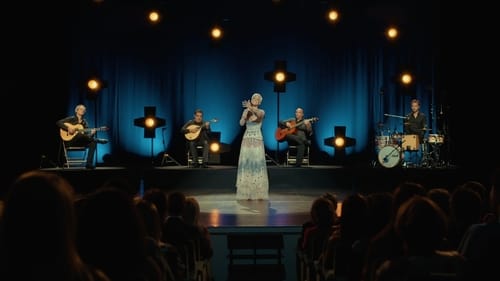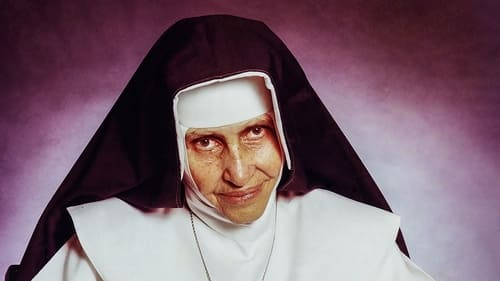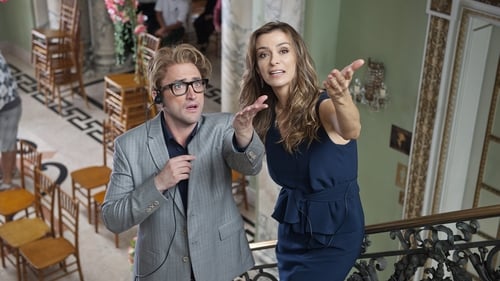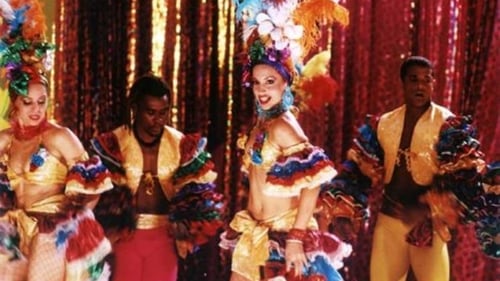Irene Ravache
Nacimiento : 1944-08-06, Rio de Janeiro, Rio de Janeiro, Brazil

Miranda
Helen, 30 years-old, decides she is going to change the rest of her life. Her biggest mistake, she asks God for some precious help.

Mãe de Bruno
Bruno is a young film editor who has just broke up his marriage with Regina, and returned living in his mother's house. Drowned in deep sorrow, something very weird happens in his life: people around him are gradually disappearing. But only for him. Some kind of blindness.

Sara
After her daughter's death, Rita returns to the African country of her childhood to investigate the death of Yvone Kane, a former political activist and guerrilla fighter. There, she becomes embroiled in a journey into the past of a land haunted by war and evil.

Madre Provincial
Biographical film of Sister Dulce, who, in life, was called the “Good Angel of Bahia”, also nominated for the Nobel Peace Prize and canonized by the Catholic Church. Contemplating from the 1940s to the 1980s, the film shows how the Catholic nun faced an incurable respiratory disease, machismo, the indifference of politicians and even the dogmas of the Church to dedicate her life to the care of the miserable, leaving a legacy that continues today.

Maria Alice
Fernanda, 39 años, periodista, es una mujer ejemplar del tercer milenio, libre en sus elecciones, independiente... y con dificultades de encontrarse un marido. Igual que sus compatriotas, Fernanda dejó a un lado la vida personal para dedicarse a la carrera, y ahora cree que su vida afectiva está en una situación de emergencia. Estar soltera a los 39 es muy distinto de estar soltera a los 29, pues “óvulos tienen fecha de caducidad”.

Irene
En la habitación de un hospital, donde un grupo de amigos, antiguos revolucionarios en la década de los sesenta, rememoran su juventud en el lecho de muerte de uno de los suyos, Ana.

Dóris
Dos hombres se disputan el corazón de una mujer en inolvidables tertulias donde el baile es un elemento esencial.

Isolda
Isolda (Irene Ravache), tía de Dolores (Laura Ramos), envía a su sobrina a La Habana 5000 dólares desde su casa en Río de Janeiro, para que pueda montar el restaurante que tanto desean ambas. Dolores no sabe que los dólares viajan camuflados en el tacón de unos zapatos de baile. Los zapatos llegan a La Habana, pero son canjeados una y otra vez por diversos artículos y distintas personas, sin que nadie sepa lo que esconden en su interior. Cuando Dolores se entera, intenta recuperarlos a toda costa, revolviendo toda La Habana, ayudada por su amigo José (Jorge Sanz) un buscavidas español que se hace pasar por cubano para sobrevivir y Mercedes (María Galiana) antigua ama de llaves, diabética y algo transtornada.

Mãe de Carlos
Fifteen year ago, Carlos went to the cinema to meet Júlia, his university colleague with whom he was in love. She never showed up. Carlos was left waiting in the lobby alone. While he waits, something happens which will change his life. A scene, an encounter, an unfinished sentence... Something insignificant, but which will determine the character's life. Fifteen years later, we follow three completely different versions of Carlos's life. In one, he is a man divided between the stability of a secure life in a lukewarm marriage, and the growing desire to live a great love affair. In the second, he is homosexual and places passion above all else. In the third possible life, Carlos is a man who hasn't yet discovered love, and lives through successive disastrous relationships in search of the perfect woman. One of them is his real life. Another is not his life. And a third is the life he'd like to lead. Which is his true life ?

Mãe de Maria
A group of friends in Sao Paulo see each other regularly in different venues of this huge metropolis, and act as their own de-facto family. They are similar in many ways, all upper middle class professionals between 28 and 32 years of age, and very conscious of their psyche and lives. The diversity within the group however, is also remarkable. It's made up about half men and half women. The men are the most diverse, ranging from your average guy looking for love to an Afro-Brazilian womanizing rich playboy, to a conflicted homosexual, heir to a business empire. It is the friendship (Amizade) and bond between these people that the film exposes, and at the same time it explores the different personalities of this apparently homogeneous, but actually psychologically diverse group of Sao Paulo yuppies. They stick together "'til friendship should ever separate them"

Carmem
A detective is hired by a mysterious woman to find her missing husband, a master of disguises, and important industry executive.

Woman
Four years after a military coup overthrew the Brazilian government in 1964, all civil rights were suspended and torture became a systematic practice. Using a mix of fiction and documentary this extraordinary film is a searing record of personal memory, political repression and the will to survive. Interviews with eight women who were political prisoners during the military dictatorship are framed by the fantasies and imaginings of an anonymous character, portrayed by actress Irene Ravache.

A series of murders begins to haunt Cordilheira, a small town near São Paulo, Brazil. The investigations show there is a love triangle involved.

A German governess is hired to give German and piano lessons to the teenager son of a rich traditional family, in the 20s. But soon they get involved, and she teaches him love lessons instead.

Set in an imaginary world where gender stereotypes are inverted, that is, women occupy positions of power while men are raised to be socially submissive. Emerging issues are addressed, not just machismo, but racism, classism and corruption, rooted in the patriarchal culture of Brazil and the world.













